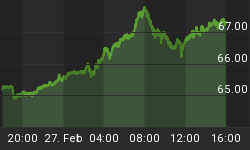The Swiss central bank is now the eighth largest investor in publicly traded shares of Facebook following the Swiss Central Bank Buying Spree.

Switzerland's central bank now owns more publicly-traded shares in Facebook than Mark Zuckerberg, part of a mushrooming stock portfolio that is likely to grow yet further.
The tech giant's founder and CEO has other ways to control his company: Zuckerberg holds most of his stake in a different class of stock. Nevertheless this example illustrates how the Swiss National Bank has become a multi-billion-dollar equity investor due to its campaign to hold down the Swiss franc.
It is now the world's eighth-biggest public investor, data from the Official Monetary and Financial Institutions Forum show. While most analysts think the strategy is sound, this does expose the SNB to stock market risks that the likes of the European Central Bank and U.S. Federal Reserve avoid.
"The SNB is in a bit of a corner, they have acquired a lot of foreign currency as part of their efforts to weaken the franc and they have to invest it somewhere," said Alessandro Bee, an economist at UBS. "The bond market is drying up and so they are going increasingly for equities."
The SNB's balance sheet is now proportionately the biggest of any leading central bank. On top of that, its stock portfolio has risen at roughly twice the rate of the overall balance sheet as it diversifies its holdings.
In the last 12 months the SNB's equity holdings have surged 41 percent to around 127 billion francs, according to Reuters calculations. Part of this is due to stocks increasing in value despite losses in recent months, as well as new purchases.
The SNB has also diversified across stock markets. The United States is its favoured location, with its holdings on Wall Street jumping to nearly $62 billion at the end of June from $38.6 billion a year earlier, according to a Securities and Exchange Commission filing.
The SNB has increased its stakes in all of its top 10 U.S. holdings this year, while many big institutional investors have been reducing much of theirs. For example the SNB's stake in Apple increased by 1.07 million shares in the second quarter, while Invesco sold 9.53 million shares and Fidelity sold 9.23 million in the iPhone maker, according to SEC filings.
FRANCS FROM THIN AIR
The SNB does not comment on the details of its strategy, but says it does not pick stocks, investing instead in companies according to their weight in various indices.
"The SNB creates Swiss francs out of thin Alpine air," said James Grant, publisher of Grant's Interest Rate Observer, a U.S. financial markets journal.
"Sound Strategy"
- "It's a diversification strategy for them and it is harder to find investment opportunities," said Alexander Koch, head of macroeconomics at Bank Raiffeisen in Zurich. "With the ultra-low interest rates environment currently there is a very high risk that the prices of bonds can fluctuate more than equities."
- "It makes sense for the SNB to do this, and I could imagine them to increase the amount of shares they hold in the future even further," said Koch. "They could even go up to 50 percent of their holdings."
- Nannette Hechler-Fayd'herbe, head of investment strategy at Credit Suisse, said that the risks attached to the SNB's investment portfolio were "absolutely manageable". Diversifying its holdings was more important than any temporary setbacks in global equities, she added.
Supposedly buying shares of corporations makes perfect sense. And the risks are manageable.
Amazing.
If the central bank really wants to weaken the Franc and cause inflation, I can help. I will even give the bank a money back guarantee.
This is all I ask: Give me $129 billion and I promise to waste $128 billion of it, quickly. If that fails to do the trick, then I request $129 billion per month, until I succeed.
For my humanitarian efforts, all I want is a one time payment of $1 billion in gold at today's prices. Should my plan not deliver the desired inflation within two years, I would gladly refund my $1 billion fee.















